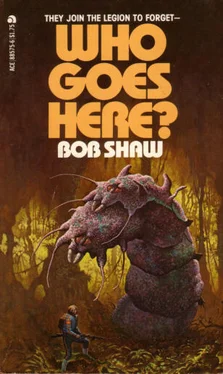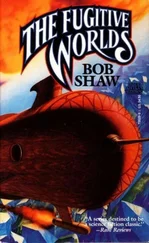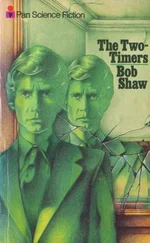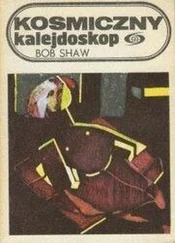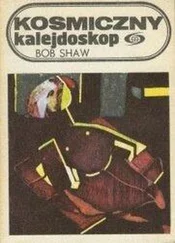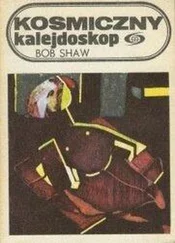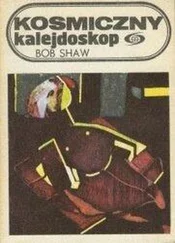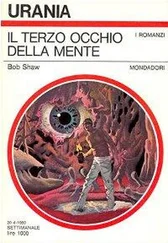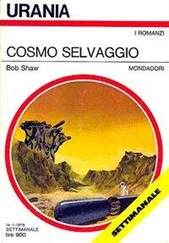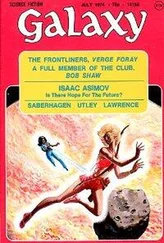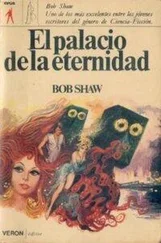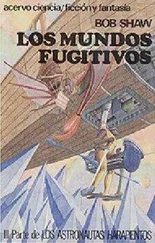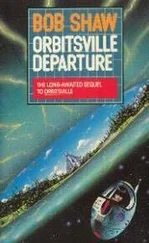The Oscars watched him disappear, then their heads slowly turned until they were looking into each other’s slitted ruby eyes. They froze in that position, and Peace could have sworn their smooth-cast features were registering surprise and bafflement. Seizing the heavensent opportunity, he ducked beneath the outspread arms and scuttled to freedom. A lancing pain in his ribs made running difficult, but there was the inevitable entrance to an alley only a few paces away, and he threw himself into it with a sob of gratitude.
The truck which was coming out of the alley at that precise instant hit him hard.
Peace bounced into the roadway and lay perfectly still, staring at the sky. He knew there was no point in trying to do anything more constructive, because he had felt the snap of bones, and a subtle wrongness within his body hinted at other damage. In the murmurous distance he heard the truck driver begin to protest his innocence, and to fall silent as the Oscars appeared on the immediate scene.
They leaned over Peace, shuttering the sky with massive shoulders, their faces unreadable.
One of them slid his arms under him and lifted, and the agony this movement occasioned told him his life was drawing to a close. The long pilgrimage had, indeed, ended.
There followed a confused period, a lapse into a discontinuous universe in which events were plotted against the all-important dimension of pain, and in which consciousness came and went with the ponderous regularity of night and day. He was faintly aware of high-speed movement through city streets … of discovering that an Oscar’s skin was warm and not, as he had expected, cold … of the clang of heavy metal doors like those of a ship… of expanding patterns of stars on a black screen, suns hurtling by at unthinkable multitudes of the speed of light… a glimpse from space of a green-and-white world which could have been Aspatria … dancing, shifting traceries of light and shade which, by dint of great effort, he recognized as a canopy of branches … the branches of the trees… the branches of the trees of the forest … the branches of the trees of the forests of the Aspatrian uplands…
“Oh, no! ” Peace tried to scream, overwhelmed by a night-black tide of premonition, but he was unable to form the words. And hard on the heels of his despair came a kind of acceptance, a belated understanding that he could achieve lasting rest only by enduring what he had caused others to endure.
The Oscars were avenging angels, cool administrators of divine justice, and for that he should be grateful to them—because, more than he craved life itself, he longed to be at peace with his conscience.
He lay quietly on the leaf strewn ground, watched the Oscars bring a throwrug to him, and was almost smiling as its living fronds—blood-red underside alive with a million tiny feelers— descended hungrily on to his face and broken body.
Much though he had always hoped for a life after death, Warren Peace had not expected it to come so quickly.
He sat up—feeling impossibly strong, impossibly good—and glanced down in wonderment at his gleaming new body. It was an heroic Michelangelo sculpture brought to life, a visual symphony of power, proportion and beauty. Highlights flickered across his golden skin as he stood up with a single lithe movement and looked about him.
There was no sign of the throwrug, but the two Oscars who had administered it to him were standing nearby, smiling. He experienced no fear, because he understood he was now one of their kind, and with his acute new vision he perceived that their faces were not as alike as he had once believed. Each had an individuality, a distinct identity which was strangely familiar…
“It’s you two!” he cried disbelievingly. “Ozzy Drabble and Hec Magill!”
“That’s right, Norman,” Drabble said coming forward. “I wish you had recognized us a bit sooner—it would have saved an awful lot of running about.”
“But I thought you were dead! ”
“A natural mistake,” I suppose,” Magill put in. “Everybody thought the throwrugs were trying to eat people—not to go into symbiotic partnership with them—and I guess it did look pretty frightening.”
Drabble nodded. “Thanks to you, Norman, Hec and I were the first human beings who didn’t get shot before the process was completed. We owe you a lot. The human race owes you a lot.”
“It was only because I was too afraid,” Peace confessed. “I was too much of a …”
“Don’t think about it,” Drabble said. “You’re an Oscar now, and you’ll never feel fear again.
The throwrug has melded itself into your body—that accounts for the extra mass—and into your nervous system. You’re a superman now, Norman.”
“But—for God’s sake!—why didn’t you tell somebody? Why didn’t you let people know the true situation instead of going around frightening everybody to death?”
Drabble looked apologetic. “Well, we’ve got subetheric voices and hearing now. We can talk to each other even when we’re thousands of kilometres apart, but ordinary human ears can’t hear us. Even dogs can’t hear us. Somebody like you could probably build a speech converter so that we could talk to humans, but we’re not so sure that would be a good idea.”
“Why not?”
“Because we don’t frighten everybody,’” Magill said. “The ordinary law-abiding citizens got used to us very quickly—it’s only the crooks, the bad guys, who take sick when they see us around. And it’s because they know they can’t hide from us, and we can’t be bought off or fought off. Maybe that’s not a bad thing, Norman. Maybe the human race needs somebody like us.”
Peace frowned at him. “Isn’t that setting ourselves up rather high?”
“We are rather high—in fact, we’re the highest,” Magill replied, unabashed. “Partnership with a throwrug develops your ethical sense even more than it improves your body. Ozzy and I, with a handful of other legionaries we managed to convert before they would have died from wounds, stopped the war right here on Aspatria. Think how many lives we saved by doing that.
“We’re symbiotic supermen, Norman— untroubled by human weaknesses such as the need for food, water, heat, air, even sex—and with your help we’re going to spread out through the galaxy, stopping wars, stamping out crime and corruption everywhere we go. Just think of it, Norman—isn’t that the sort of life you’ve always really wanted?”
Peace considered the proposition for a moment, and realized that Magill’s words were perfectly true. He gazed at his two companions, his slow-dawning smile mirrored on their golden faces, and the purest happiness he had ever known fountained through his inner being.
He extended his hands, Drabble and Magill linked arms with him, and—singing at the tops of their subetheric voices—the three gleaming giants danced away through the forest, playfully kicking down the occasional tree in their unbounded exuberance.
